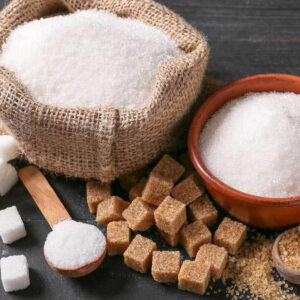Manufacturers consider beet sugar vs cane sugar when choosing sweeteners for different food products.
Manufacturers consider beet sugar vs cane sugar when choosing sweeteners for different food products.
Blog Article
A Detailed Look at the Benefits and Uses of Beet Sugar Vs Cane Sugar for Sweetening Options
In the realm of sweetening, both beet sugar and cane sugar offer distinct advantages and cooking duties, albeit with similar nutritional profiles. While beet sugar boasts a neutral taste suitable for different recipes, cane sugar enhances dishes with refined caramel undertones.
Origins and Processing Techniques of Beet Sugar and Cane Sugar
Beet sugar and cane sugar, two primary sugar, stem from really distinctive plants and undergo various handling techniques. Beet sugar is extracted from the sugar beet, a root veggie, primarily grown in cooler environments.
Alternatively, cane sugar comes from the sugarcane plant, a tropical turf. Its processing starts with gathering the cane, crushing it to acquire the juice, and then steaming this fluid to form sugar crystals. The remaining molasses-rich liquid can be re-boiled multiple times to produce varying qualities of sugar. This procedure, although somewhat comparable in its goal, differs significantly in regards to the environmental problems needed for growing and the preliminary actions in extracting sugar. beet sugar vs cane sugar. Each approach reflects adaptations to the corresponding plant's natural habitats and homes.
Nutritional Comparison: Beet Sugar Versus Cane Sugar

When contrasting the dietary web content of beet sugar and cane sugar, it becomes evident that both types supply a similar power value. Both beet and cane sugar are 99.9% pure sucrose, making them virtually identical in terms of calorie web content and dietary account.
However, mild differences may occur from the minimal micronutrient that continue to be after handling, though these are also small to influence total wellness. For example, cane sugar can preserve traces of molasses, depending on the level of refining, which may include small quantities of calcium, iron, and potassium. Beet sugar, on the other hand, commonly undergoes a procedure that removes these micronutrient better, leading to an even purer type of sucrose.
Culinary Uses and Taste Profiles
Despite their dietary similarities, beet sugar and cane sugar diverge notably in their cooking applications and flavor subtleties. Beet sugar, derived from sugar beetroots, generally has a really neutral taste, making it a favored selection in baking where it perfectly incorporates without altering the flavor account of various other components. beet sugar vs cane sugar. It dissolves quickly, which is advantageous in drinks and fine desserts. On the various other hand, cane sugar, sourced from the sugarcane plant, typically brings refined tips of molasses, even in its polished type. This can include a warm, caramel-like touch to meals, improving dishes like cookies, cakes, and sauces where a richer taste is preferable.
Chefs and home cooks alike pick sugars based on these qualities. While both sugars work likewise in regards to sweetness and physical properties, the slight taste distinction can influence the end result of a meal considerably, assisting the choice between beet and cane sugar based upon the desired end result in culinary productions.
Wellness Ramifications of Consuming Beet and Cane Sugars
Although beet sugar and cane sugar are typically used reciprocally in food preparation and baking, their wellness implications can differ discreetly as a result of their distinct click to read more handling techniques. Both sugars offer about the very same amount of calories and carbs per tsp, essentially offering similar power contributions without any inherent dietary benefits. The refining procedure for each sugar can change the visibility of trace minerals and compounds, although these variations are normally minimal and not considerable adequate to influence one's health meaningfully.
The main health and wellness concern with both sorts of sugar refer to their contribution to too much calorie intake, potentially bring about weight gain, and associated diseases like type 2 diabetes mellitus and heart problem when eaten in huge amounts. For that reason, no matter the source, small amounts is essential in consuming beet or cane sugars. Health experts usually recommend restricting sugarcoated in any kind of form to maintain optimum health outcomes.
Ecological Effect and Sustainability of Sugar Manufacturing

Alternatively, sugar beet processing has a tendency to create huge amounts of pulp waste, which can be repurposed as animal feed or transformed right into bioenergy, thus reducing some ecological impacts (beet sugar vs cane sugar). Inevitably, the sustainability of sugar production rests on embracing even more eco-friendly farming strategies and waste monitoring practices to minimize the environmental impact of both sugar types

Final Thought
Beet sugar is noteworthy for its sustainability and neutral taste, whereas cane sugar is treasured for its rich taste. Consumers should take into consideration these aspects, along with the environmental implications of sugar production, to make informed selections regarding sugar anonymous usage that straighten with culinary demands and moral worths.
Report this page